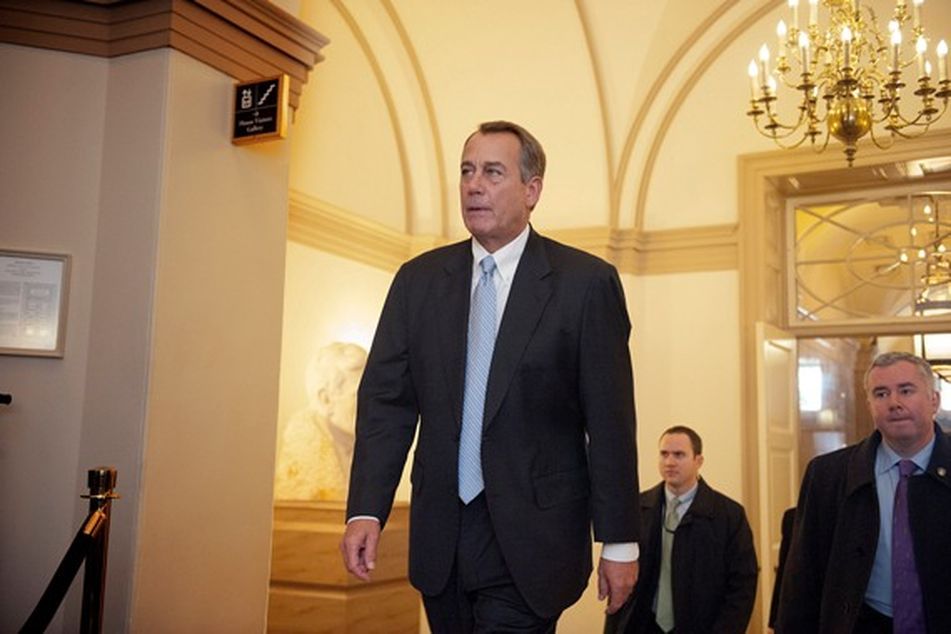Country going over fiscal cliff as House won’t pull all-nighter

Advisers taking Washington's inaction in stride.
Updated as of 10 p.m., EST
Investment advisers are sanguine about the one piece of certainty achieved today about taxes – the country is going over the fiscal cliff, at least for a while.
The House of Representatives will not vote on New Year’s Eve on a potential package to avert about $600 billion in automatic tax increases and spending cuts, according to House GOP aides. The chamber, which may take up such a measure on Tuesday or Wednesday, is scheduled to come back into session at noon on Tuesday.
First the House needs a bill to vote on. Right now, the fiscal cliff action is in the Senate, where Senate Minority Leader Mitch McConnell, R-Ky., said earlier today that his negotiations with Vice President Joe Biden have resulted in an agreement on fiscal-cliff tax issues. The sticking point is how to pay for a several-month delay to $110 billion in domestic spending cuts slated to begin on Jan. 1.
It’s not clear whether Senate Majority Leader Harry Reid, D-Nev., backs the agreement that Mr. McConnell and Mr. Biden have apparently reached. The Senate could vote on a bill late Monday night.
As of midnight on Jan. 1, the Bush administration tax cuts will expire, raising the top marginal rate to 39.6% from 35%. Capital gains taxes rise to 20% from 15% and dividend rates increase to ordinary-income rates from 15%. In addition, the alternative minimum tax exemption expires, potentially subjecting 30 million more Americans to that levy.
If fiscal-cliff legislation is approved by the Senate and brought under consideration by the House on Tuesday or Wednesday, the impact would be slight. The tax rate changes can be retroactive and the Internal Revenue Service can tell employers to keep withholding tables at their 2012 levels for a while.
“As long as [a fiscal-cliff agreement] happens in the next few days, everything is going to be fine,” said Tim Steffen, senior vice president and director of financial planning at Robert W. Baird & Co.
A temporary fall off the cliff is not a big deal, said Kenneth Klabunde, vice president of City Securities Corp.
“The tax cuts that are expiring tonight are designed to expire,” Mr. Klabunde said. “This is no surprise. This is what we signed up for.”
Still, when tax rates for all Americans snap back to their pre-2001 levels on Tuesday, that changes the political context for dealing with the fiscal cliff.
“By waiting until after the New Year, the Republican party gains the ability to vote to decrease taxes rather than voting today to increase taxes” on some income levels, Mr. Klabunde said.
President Barack Obama has been pushing Congress to permanently extend the Bush tax cuts for households making less than $250,000. That level, however, has apparently gone up to $450,000 in negotiations between Mr. Biden and Mr. McConnell, according to a Senate GOP aide.
Other elements of the McConnell-Biden agreement include a permanent capital gains and dividend rate of 20% for households making more than $450,000 and 15% for those below that threshold; a permanent extension of the AMT exemption; an estate tax rate of 40% with a $5 million individual exemption; the continuation of increased unemployment benefits.
No Senate fiscal-cliff agreement has been officially announced nor have details been released.
GOP senators emerging from a caucus meeting Monday night were generally optimistic.
“We’re hoping to have a vote in a couple hours here in the Senate,” said Sen. Dan Coats, R-Ind.
Democrats also were also optimistic that a Senate vote would occur on Monday night.
“We’re extremely close,” said Sen. Max Baucus, D-Mont.
One of the sticking points, however, revolves around whether to index the estate tax to inflation.
Senate Democrats met with Vice President Joe Biden around 9:15 p.m. Monday.
Learn more about reprints and licensing for this article.








